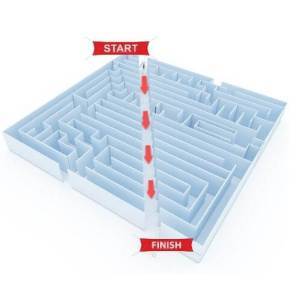Writers, Do You Struggle with the Learning Curve?

We all had a ‘first step’ in our writing journey. In my case, I signed up for a mail-in writing course (yes, “mail-in.” This was a long time ago.). They paired me with a mentor; I would turn in assignments to him, and he’d offer suggestions for improvement and words of encouragement.
When I completed the course and got my certificate, I was SURE my author career was about to launch. All I had to do was find out how to submit these ‘wonderful’ stories I’d written during the course…how hard could it be?
Since I knew nothing about publishing, I joined a few writing forums. I discovered publishing was competitive, and many writers would use critique partners to help them get their stories as strong as they could be before submitting. So, I joined the Critique Circle. Soon after, I met Becca – we clicked right away, and worked to help each other improve. We decided to study writing craft together and as you know, eventually went on to publish the Emotion Thesaurus.
But between joining the Critique Circle and creating one of the best-loved guides out there, I almost quit.It was the learning curve. It seemed like no matter how much I knew, it was never enough. There was always more.

As I learned from other writers at the Critique Circle I could see I had a long way to go. That was okay, I was ready to put the work in. And I did, studying, critiquing others, writing more stories. I grew my craft.
Eventually I queried, got an agent, left them after a time, got another, went to acquisitions. And repeat, repeat, repeat. I became stuck in a close-but-not-quite loop, and it did a number on my head. I started to doubt myself. I thought something was wrong with me–I wasn’t smart enough, or creative enough. Maybe this writing thing wasn’t meant to be.
(I’m guessing some of you can relate to my story.)
Thankfully, today the landscape is different. We have more than one path to publishing, and a successful career is more in the hands of the writer than gatekeepers. But one thing that remains the same is the learning curve. A compelling story has a lot of moving parts, and there’s a lot to know. It’s easy to get frustrated when we hit a gap in our knowledge.
At some point, the weight of what we’re trying to do hits us, and it can be soul crushing to realize just how much we DON’T know about storytelling. Some flirt with giving up. Others do.
And the rest? They soldier on, because they can see the forest for the trees.
Storytelling is an art. It takes time to be good at it.With any career, there’s a learning curve. No one expects to walk out of med school after a year ready to do brain surgery. Yet as writers, our expectations are sky-high. We irrationally can feel like if we don’t master everything quickly, something is wrong, and we’re the problem.
This mindset can do a lot of damage, and it’s why I almost quit. I hadn’t yet learned the most important lesson of all: writing, like all creative careers, means ongoing education. There will always be more to learn, new ways to grow our insight and skills. And that’s a GOOD THING. It means we’ll never peak. We’ll always have a better story ahead. And that’s pretty exciting, don’t you think?
What’s the best shortcut for the learning curve?
Well…there are no shortcuts. We must all learn what we need to, and it will take as long as it takes. But there are ways to “shorten” the learning curve. Investing in the right help and seeking out the best sources of information can keep us focused and on task. Thankfully there are many great books, resources, mentors, tools, and more out there. One of the best all-round places to start would be this page.
I mentioned earlier that shortly after we met, Becca and I began studying writing craft together. We actually took a year off from writing fiction to tandem study the best writing guides out there, and it gave us a terrific foundation of knowledge. Since then, we’ve continued to be students of the craft, reading and experimenting. We’ve also taught and mentored, passing on the best lessons we’ve learned to others.
And now we’ve created a system for planning, writing, and revising a novel: a Storyteller’s Roadmap. It’s full of expert advice, hard-won lessons, tools, checklists, and more, taking you from that first idea to a publish-ready manuscript.

This is our answer to “How can I shorten the learning curve?” because we supply the information you need as you need it. We also direct you to the best resources to help you at each step, so you’re never wasting time looking for help or wondering what tool to use.
Our intention with this roadmap is that the more you use it, the more you sharpen your skills, and that means delivering even better stories to readers. And that’s what it’s all about. If you’re interested, here’s more about our Storyteller’s Roadmap and One Stop for Writers site. (TIP, use this 30% off code: CONFLICT until September 20th.)
Can you go it alone and be a successful author?Absolutely! It just will take a bit longer simply because there’s so much to know about writing, publishing, and marketing, and so this means more researching and trial-and-error. Reaching out to others to benefit from their wisdom and experience shortens the learning curve.
What’s something you’ve done that really helped with the learning curve? Let us know in the comments!The post Writers, Do You Struggle with the Learning Curve? appeared first on WRITERS HELPING WRITERS��.
Writers Helping Writers
- Angela Ackerman's profile
- 1014 followers



